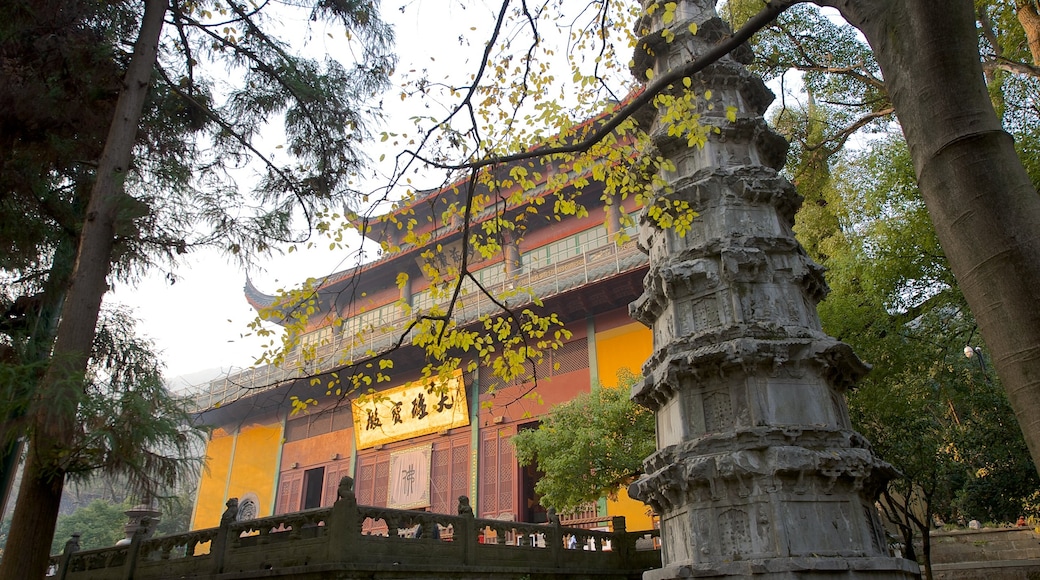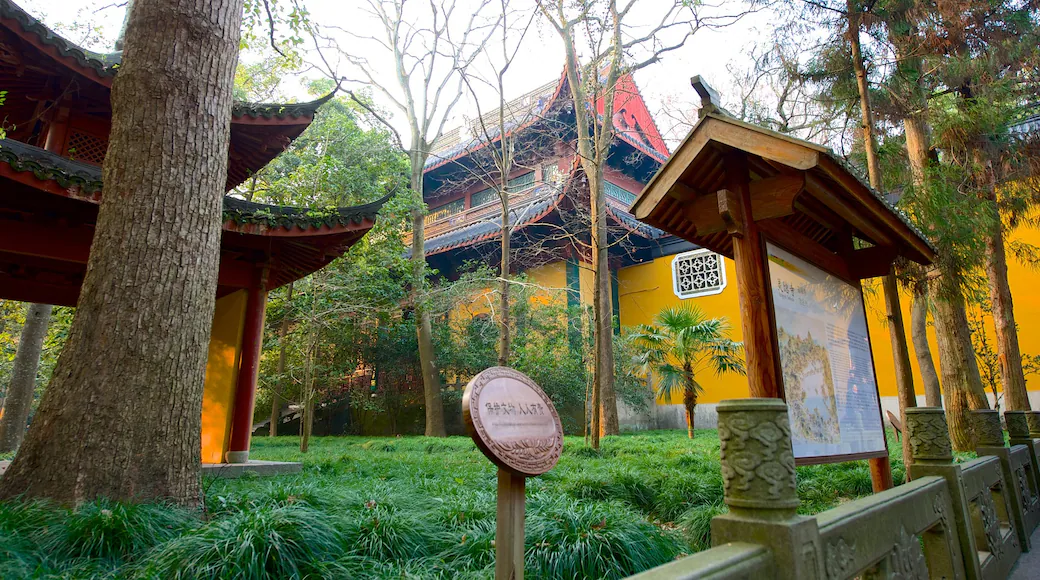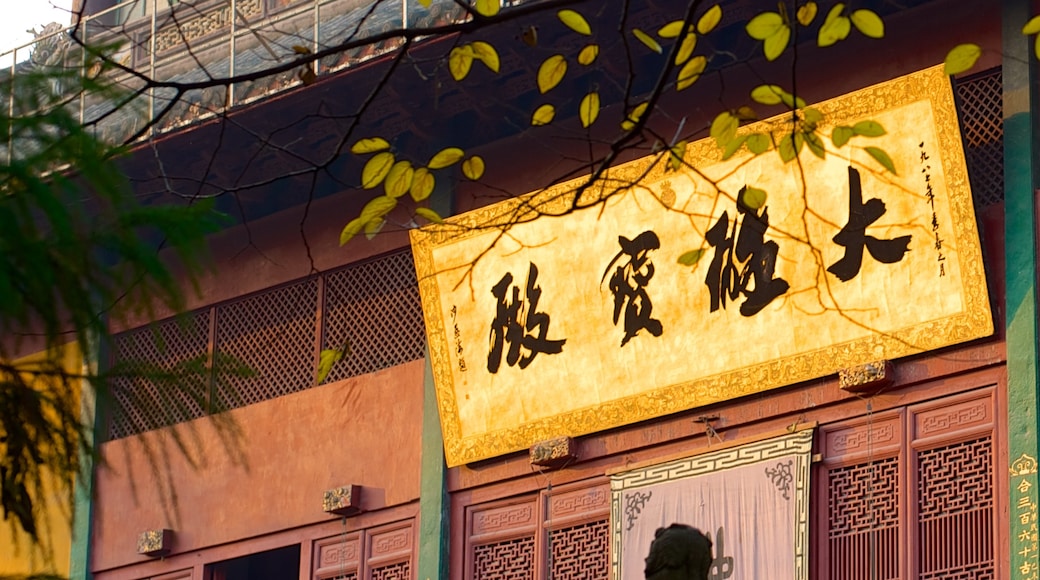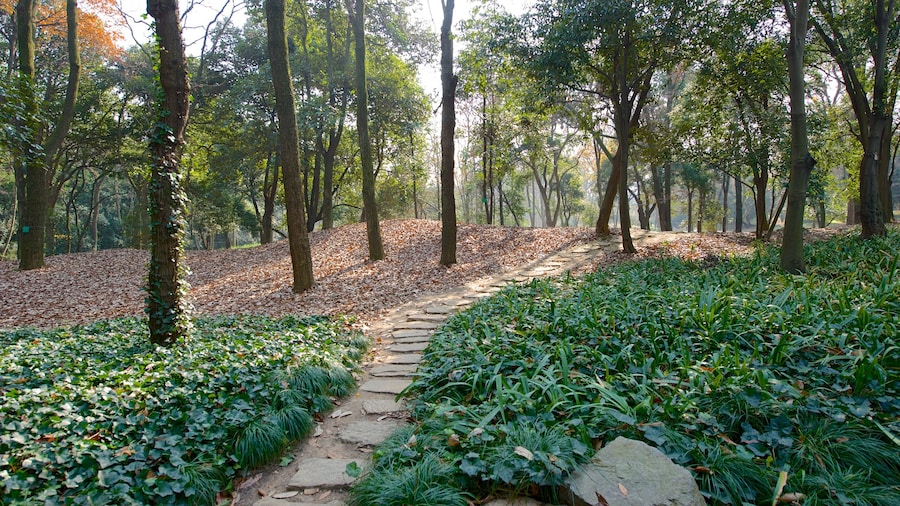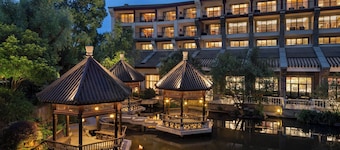This ancient temple is one of the largest and most extravagant temples in China, with soaring ceilings and hundreds of statues.
Lingyin Temple is often quoted as being one of the 10 most famous Buddhist temples in China. It is filled with statues and intricate carvings. The temple is situated at the foot of Lingyin Mountain, surrounded by picturesque woods.
The temple was founded in A.D. 326 by the monk Hui Li, during the Eastern Jin Dynasty. Hui Li was inspired by the spiritual nature of his surroundings to build a place of worship. The name Lingyin means “Soul's Retreat.” The spiritual atmosphere can still be felt today visitors often comment on the energies of this area of the West Lake. The complex was once comprised of 72 palaces and halls and housed 3,000 monks. Today, the temple is smaller but there is still a lot to see.
Before entering the temple, visit Feilai Feng or Flying Peak, located in front of the entrance. Admire the hundreds of Buddhist statues carved into the limestone. Flying Peak's name derives from the legend that the rock was originally from India, but flew to Hangzhou overnight.
Walk up to the Hall of the Heavenly Kings. Gaze at the colourful statues of the four kings and take in their immense size. Notice the main statue of Maitreya Buddha, the “cloth bag monk.” Tilt your gaze upwards to see a ceiling of painted phoenixes and dragons swirling above you.
Make your way through a courtyard to the Grand Hall of the Great Sage, with its 110-foot (33.6-metre) tall ceiling. Underneath it resides a statue of Shakyamuni, carved from camphor in 1953. It's said to be the biggest wooden Buddhist statue in China.
Continue uphill through the Hall of the Medicine Buddha and past the Sutra Library. The library is not open for worship. At the Huayan Hall, you'll come across the three sages of the Avatamsaka Sutra, a major Buddhist text.
Finish up in the Hall of Five Hundred Arhats, known for its Buddhist swastika-shaped floor. Lining the arms of the Buddhist swastika are 500 larger-than-life bronze statues of arhats (people who have attained Nirvana). It is a breathtaking sight.
Lingyin Temple is open daily. An admission fee applies. From Hangzhou's main train station, take one of two bus lines to the Lingyin stop.
